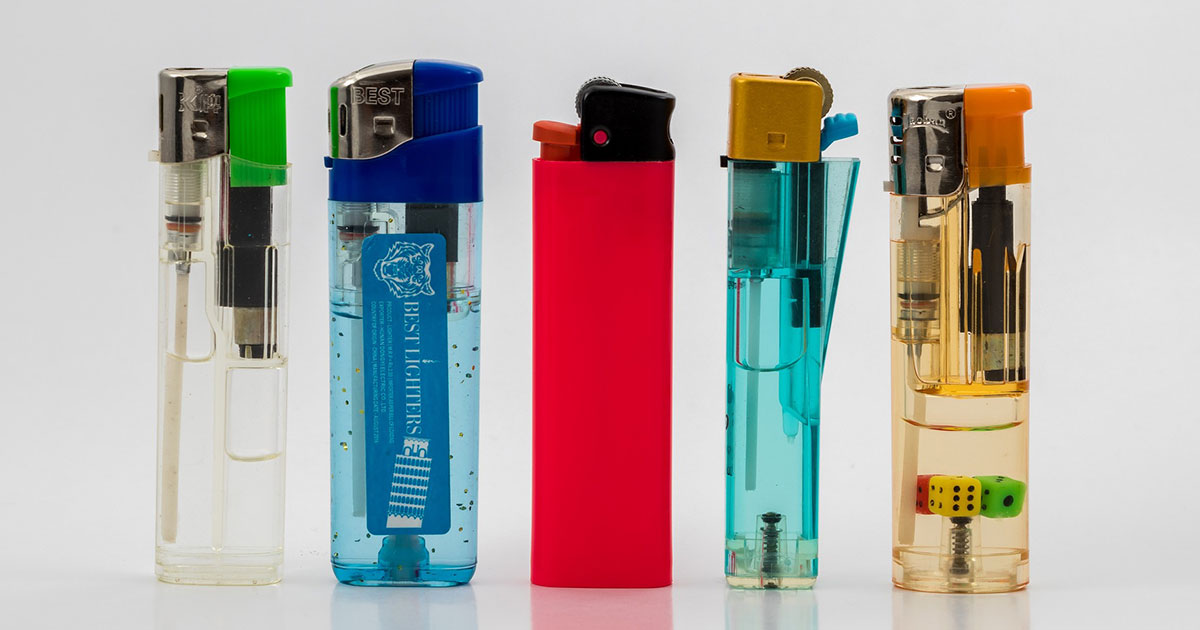

Whether or not lighters may be carried on a plane is a frequently discussed topic due to safety concerns. Flights are a great mode of transport. But sometimes flying by air can present certain challenges. These challenges can be anything from unpacking for security to finding the best ways to store your luggage. The transport rules for lighters on the plane can be a challenge. Whether you should pack lighters in your hand luggage or your suitcase depends on the airline’s policy. In this blog post (article), we will look at the issue and explain what you need to look out for when taking lighters on a flight and what rules the airlines have set.
Lighters can be a source of danger if they are carried in hand luggage. In principle, passengers must carry the lighter on their bodies. The right place is therefore the trouser or jacket pocket. Every passenger is allowed to take a lighter on board an aircraft. Some airlines only allow a single light to be carried in a transparent, sealed package. Therefore, it is important to know the airlines’ specific rules regarding lighters in hand luggage.
Whether you are allowed to carry a lighter in your suitcase when flying depends on the airline. It is important to find out about the guidelines in advance or ask at the check-in desk if necessary. Some airlines prohibit the carrying of empty and fully charged lighters, while other airlines allow the transport of unused lighters. As a general rule, only one commercially available lighter or one small box of matches may be carried per person. Both items are prohibited in checked baggage. Both items must be carried “personally”, for example in the jacket or trouser pocket. It is therefore best to ensure before you travel that you bring all permitted items on board and leave all prohibited items at home.
Air travellers often wonder; Which lighters are allowed on the plane? It is important to know which types of lighters you can and cannot take on the plane. Approved disposable lighters are usually allowed, but all other types of lighters are prohibited due to their potential dangers. These include: Storm lighters, petrol lighters (Zippos), jet lighters, light-bottom lighters, plasma lighters and electric lighters (e.g. cigarette lighters). Whether the respective model is empty or filled plays a subordinate role. It is therefore always worth checking the airline’s guidelines before travelling. If you do bring a prohibited lighter on board, you should be aware that you will have to hand it in before boarding the aircraft.
Most airlines prohibit flammable items such as Zippo lighters from being brought onto the plane. The security authorities at German airports have now classified Zippo lighters as potentially dangerous. Therefore, you are not allowed to pack such a lighter in your hand luggage or checked baggage. If you attempt to bring such lighters on board, you may risk a fine and confiscation of the item.
This question depends on the airline. There is no general rule about how many lighters you are allowed to carry in your suitcase. In principle, every traveller is allowed to take one lighter on board an aircraft. However, to ensure that your flight runs smoothly, you should follow the airline’s regulations and find out about the requirements on board before you travel.
If you have a lighter in your luggage, it will likely be found by the security staff at the airport security checkpoint. Depending on your airline’s policy, you could be forced to leave the lighter behind before boarding or take it on board as a non-baggage item. There is also a possibility that your luggage with the lighter will be checked and/or delayed. Therefore, it is best to check all regulations of the respective country and airline before booking a flight.